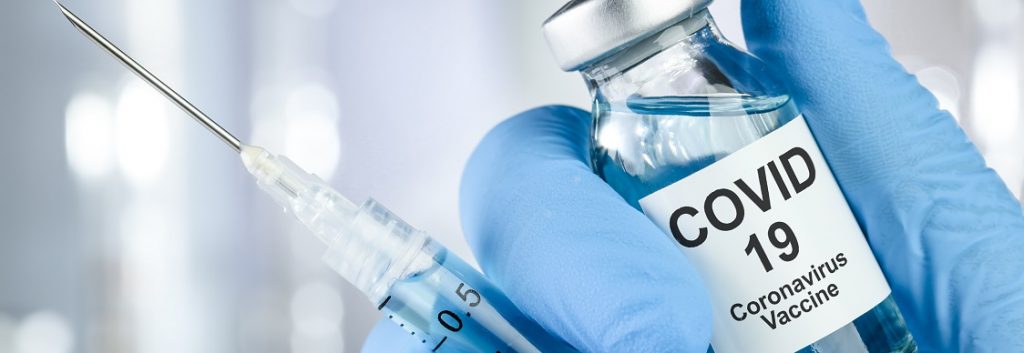Above: watch the 26 April 2021 coverage of this story by GlobalNews.
See also the CIHR’s timeline and video “The long road to mRNA vaccines,” featuring the contributions highlighted here.
Pfizer caught the world’s attention with its promising early results for a COVID-19 vaccine candidate. What has been less widely publicized is the pivotal role of Canadian know-how and technology in the development of this vaccine.
On Monday November 9, 2020, Pfizer and partner company BioNTech shared an interim analysis of data from an ongoing Phase 3 clinical trial, suggesting their vaccine candidate might be 90 per cent effective against COVID-19. On November 18, the two companies concluded the trial, with results indicating that the vaccine is 95% per cent effective in preventing COVID-19. Pfizer filed for emergency use authorization with the FDA to allow vaccinations to begin in December, and the FDA approved the vaccine on December 11. The Canadian government approved its use on December 9, 2020.
Thus emerged a defence against the pandemic that has caused global havoc since the spring of 2020. All thanks to Canadian technology.
The remarkable potency of the Pfizer vaccine is entirely dependent on a lipid nanoparticle (LNP) system that delivers encapsulated messenger RNA (mRNA) to the interior of target cells. This LNP system is a “made in Canada” product and stems from research pioneered by NMIN’s Scientific Director Dr. Pieter Cullis and colleagues at The University of British Columbia (UBC) that began in 1978.
“Our initial work was focused on delivery systems for small molecule drugs used for chemotherapy, but in 1995 we began trying to develop LNP systems that could deliver much bigger RNA and DNA molecules into cells,” notes Dr. Cullis. “In 2012 these efforts culminated in an LNP formulation of short interfering RNA (siRNA) to prevent production of disease-causing proteins in the liver. This formulation was then used to develop a drug called Onpattro that was approved by the US FDA in 2018 to treat a previously incurable hereditary disease.”
Much of the work to develop Onpattro was conducted by Vancouver-based Acuitas Therapeutics (Acuitas), which Dr. Cullis co-founded in 2009. When Onpattro entered clinical trials in 2012, Acuitas turned its attention to developing LNP systems to deliver much larger mRNA molecules into target cells, where it causes proteins to be made (expressed) that are coded for by the mRNA. Acuitas and collaborators soon found that if the mRNA was coded for proteins made by viruses such as the Zika virus, very strong immune responses could be generated. This finding led to collaborations with companies such as BioNTech in Germany to develop LNP mRNA vaccines to treat cancer.
“The BioNTech collaboration went amazingly well,” comments Dr. Cullis, “and, when the pandemic hit, efforts immediately switched to develop an LNP mRNA COVID-19 vaccine, an effort that was significantly aided by BioNTech’s large pharmaceutical partner, Pfizer. LNP mRNA systems are totally novel vaccines.”
As Dr. Thomas Madden, president and CEO of Acuitas, told Global News in November 2020: “We are developing a vaccine that’s using an mRNA that tells our cells how to make a protein that’s actually found in the COVID-19 virus. But the messenger RNA can’t work by itself; it needs a delivery system to carry it into the cells where it can be expressed and give rise to an immune response. We provide our partners in Pfizer and BioNTech the lipid nanoparticles used to deliver this mRNA.”
The remarkable efficacy of LNPs for mRNA delivery is also being leveraged by other COVID vaccine efforts. For example, Vancouver-based Precision Nanosystems, Inc. (PNI), also co-founded by Dr. Cullis, is using lipid-based systems to advance a COVID-19 mRNA vaccine candidate to clinical trials. In October, PNI was awarded $18.2 million from the Government of Canada to support this effort.
Regarding Pfizer’s vaccine, Dr. Anthony Fauci, Director of the US National Institute of Allergy and Infectious Diseases, commented to The Associated Press that the results were “just extraordinary,” adding: “It’s going to have a major impact on everything we do with respect to COVID.”
“It doesn’t get any bigger than this,” observes Dr. Cullis. “This is a game-changer for the nanomedicines community, and a great accomplishment for Canadian science and innovation.”
Update: Recognition grows for role of LNPs and Canadian biotech in COVID-19 mRNA-based vaccines
















